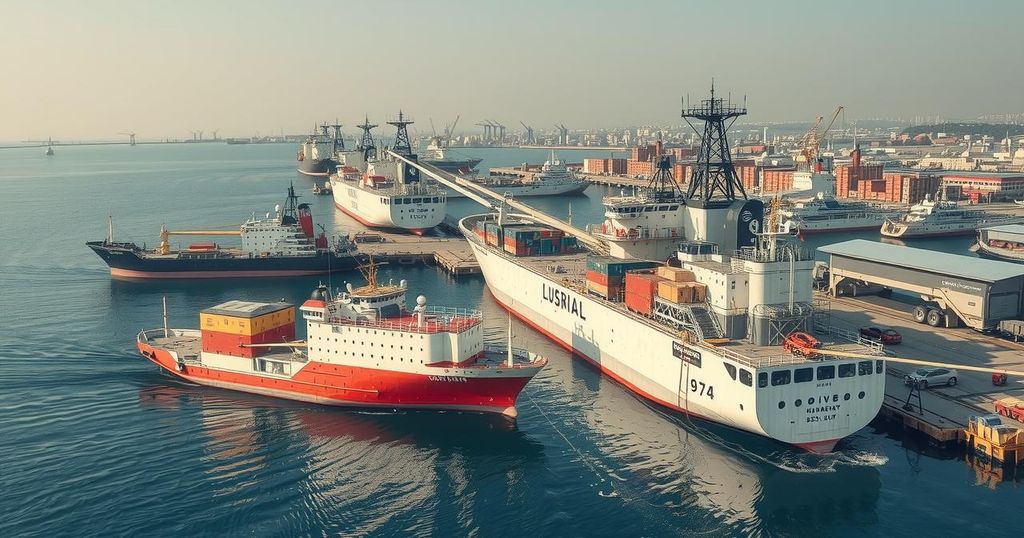Turkey and Qatar Aid Syria’s Power Crisis with Incoming Electricity Ships

Turkey and Qatar are sending two power ships to Syria to enhance electricity supply amidst severe shortages caused by over a decade of civil war. The United States has eased sanctions following the fall of Bashar al-Assad, allowing for this support as hopes for recovery and stability grow. These ships are set to provide significant additional power to a nation grappling with extensive infrastructural damage and resulting outages.
On Tuesday, Khaled Abu Dayy, the head of Syria’s national electricity company, announced that two power generating ships from Turkey and Qatar are being dispatched to Syria to bolster electricity supply. This initiative follows the United States’ recent decision to ease sanctions in light of changes in the Syrian government after the ousting of President Bashar al-Assad. With over 13 years of conflict severely damaging the nation’s infrastructure, Syria currently faces debilitating power outages lasting over 20 hours daily.
The newly sent ships are expected to generate approximately 800 megawatts of electricity, which would account for half of Syria’s existing output. Currently underway are efforts to establish power lines for the distribution of electricity from the ships’ docking site, although the exact location remains unspecified.
In a significant diplomatic shift following Assad’s flight to Moscow, both Turkey and Qatar, known for their support of Syrian opposition forces, have reopened their embassies in Damascus. Turkey’s longstanding relations with the Hayat Tahrir al-Sham rebel group have granted it substantial influence in the region. A recent visit by a delegation from Turkey’s energy ministry to Damascus signifies ongoing engagement between the two nations.
With nearly three million Syrian refugees residing in Turkey since the onset of the civil war in 2011, Assad’s overthrow has kindled possibilities for their return. Despite supporting the transitional government’s pleas for lifted sanctions, the international community remains cautious, with most nations, including the United States, expressing a desire to observe how the new authorities govern before making any commitments.
The humanitarian implications of Syria’s prolonged civil war are profound, with over half a million fatalities and extensive economic destruction. As noted by Economy Minister Samer al-Khalil in 2021, damage to the energy sector alone since 2011 has been estimated at around $100 billion.
The civil war in Syria, which has lasted for over 13 years, has resulted in extensive damage to the nation’s infrastructure, particularly impacting energy production and distribution. This has led to severe power shortages and regular outages that can exceed 20 hours per day. The recent political shifts in Syria, accentuated by the actions of the United States in easing sanctions following Assad’s removal, have created a need for increased energy support. Turkey and Qatar’s involvement signifies a renewed interest in stabilizing the region following years of conflict.
The commitment of Turkey and Qatar to send power ships to Syria is a significant step towards addressing the pressing energy crisis in the nation. Amidst the transitional government’s request for sanction relief, the international community eagerly watches the evolving political landscape. While promising, the ultimate impact on the Syrian populace remains contingent on the effective implementation of new governance structures and international relations moving forward.
Original Source: www.barrons.com








